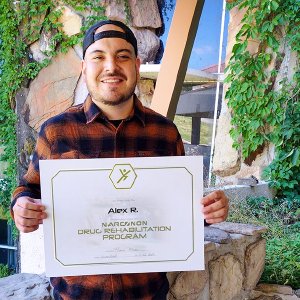What You Can Do to Prevent Drug Overdoses in 2020

2020 will certainly go down in the history books. This year has seen a pandemic, an economic recession, contested elections, and depression-era unemployment rates for many Americans.
But when someone struggles with an addiction to drugs and alcohol, their condition is already challenging, even when other problematic factors are not present. Adding the COVID-19 pandemic and general uncertainty about the future makes matters far worse for someone who is already afflicted with a life-threatening drug or alcohol habit.
What is at stake here? And what can the family members and loved ones of addicts do about it?
Additional Risk Factors for Drug Overdoses in 2020
The most troubling risk factor when it comes to drug abuse is the constant threat of death from overdose. Unfortunately, 2020’s death toll may be worse than 2019’s for three main reasons. These are:
- The steady growth trend in ODs that’s been ongoing since the turn of the century: Drug overdoses are not new. Since the turn of the century in the United States, drug overdoses from opioids alone have skyrocketed, culminating in the current Public Health Emergency.

- COVID-19 and all of the fear, worry, and risk that’s gone along with it: In addition to battling the crisis of addiction in America, the United States has another problem to deal with in the form of COVID-19. People who struggle with drinking or drug use are more susceptible to contracting this life-threatening disease. For addicts, that factor moves tensions even higher, again increasing the risk for overdose.
- The highest number of lost jobs since the Great Depression: Addiction and financial strain almost always go hand-in-hand. Crippling financial difficulties can be part of why someone turns to drugs and alcohol in the first place. Because of the added burden of unemployment, layoffs, lack of funds, economic uncertainty, and an inability to afford basic necessities, addicts may use drugs more dangerously to cope.
These factors create a concerning predicament. According to the Centers for Disease Control and Prevention, at least 72,000 people died from drug overdoses in 2019. That’s almost 200 deaths per day. As 2020 comes to a close, it’s up to the family members and loved ones of addicts to do everything they can to ensure their addicted loved ones do not become a statistic.
Preliminary Reports for 2020
While we will not have definitive data for the total number of overdose deaths in 2020 until well into 2021, some regions of the nation are already beginning to report spikes in OD fatalities this year. For example, a Maryland report cited increases in virtually all types of drug deaths during the first several months of 2020, with grim projections for the rest of the year.
Vermont, another state to release early data on drug overdoses, is also reporting increases. And here, the increase has been quite harsh. In 2019, about 15 people died in Vermont of an opioid overdose for every 10,000 residents. So far, in 2020, about 29 people have been dying from opioid overdoses for every 10,000 residents, nearly a doubling in the death toll from the previous year.
For America to come back from COVID-19, economic stagnation, and severe drug addiction crises, families will have to get involved and help each other overcome shared problems.
How to Prevent a Drug Overdose
There has never been more urgency than right now to help an addicted loved one get better. The alternative is too grim to bear. Overdoses are very real, and they are becoming increasingly lethal as drugs become more potent and as addicts use them more recklessly. If you know someone who is addicted to drugs and who cannot stop using them, here is a quick look at what you need to do:

- Talk to them. The first step is always to communicate. Most of the time, people who struggle with addiction do want to get help. They just don’t see how they can stop using drugs. That’s why you have to talk to them and engage them in discussions about the importance of doing whatever it takes to get off of drugs. It may take several conversations between you and them to help them see that they can get better.
- Request the help of an interventionist. If your loved one is unwilling to consider getting treatment, the next step involves hiring a professional, someone who is specially trained in helping addicts see that treatment is not only preferred but that treatment is crucial.
- Get them into treatment. The end goal always has to be one of helping your loved one get into treatment. Residential drug and alcohol rehabilitation centers like Narconon can offer a professional, proven, and comprehensive program that helps people break free from addiction. Narconon helps recovering addicts not only overcome the day-to-day crisis that is an addiction, but the program also helps recovering addicts overcome the critical issues that caused them to begin using drugs in the first place. Please call Narconon today to take the first step to get your loved one the help that they need.
While not a final solution, naloxone is an effective, readily available drug that can reverse the effects of an overdose in minutes. If you suspect a loved one may be using opiates, having naloxone on hand might save their lives. If you or anyone you know is using opiates, keeping it on hand may save a life.
Sources:
- https://www.cdc.gov/nchs/nvss/vsrr/drug-overdose-data.htm
- https://bha.health.maryland.gov/Documents/OOCC%20CY20%20Q1%20OD%20Death%20data%20June2020.pdf
- https://www.healthvermont.gov/sites/default/files/documents/pdf/ADAP_Monthly_Opioid_Update.pdf
Reviewed by Claire Pinelli, ICAADC, CCS, LADC, RAS, MCAP


